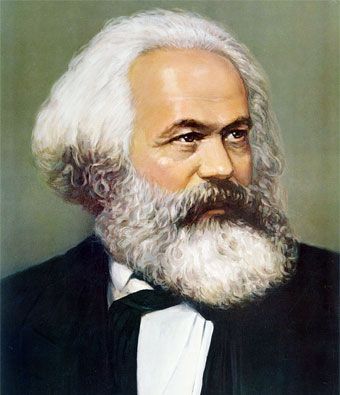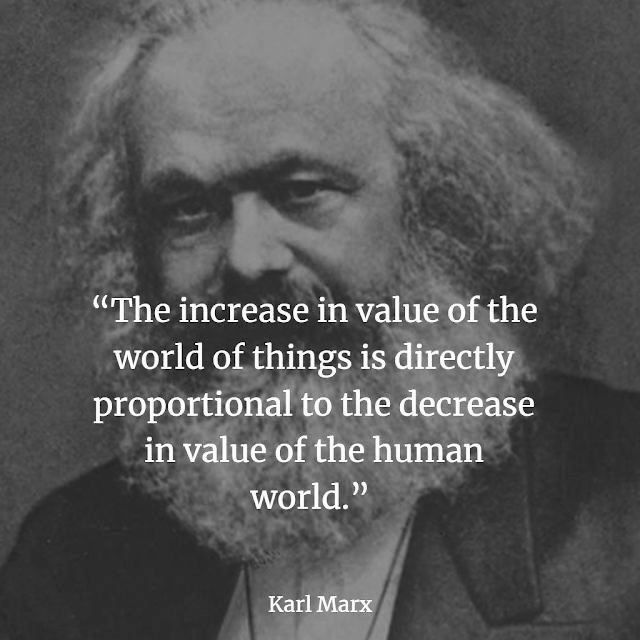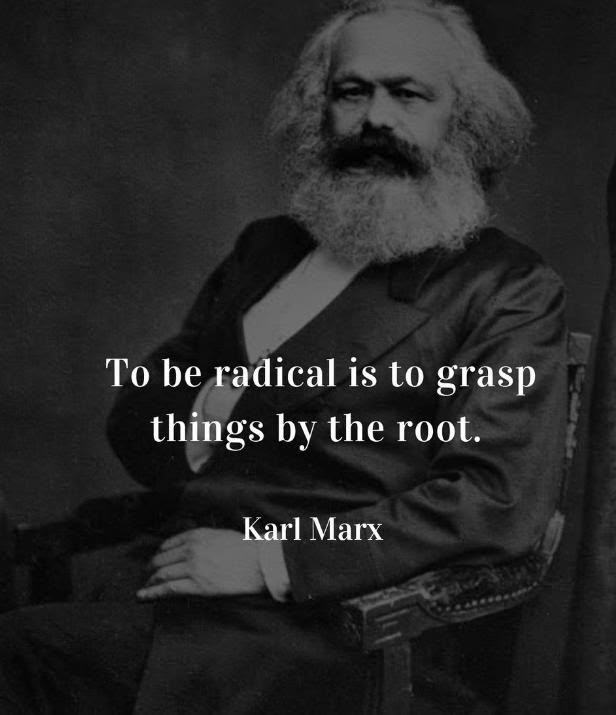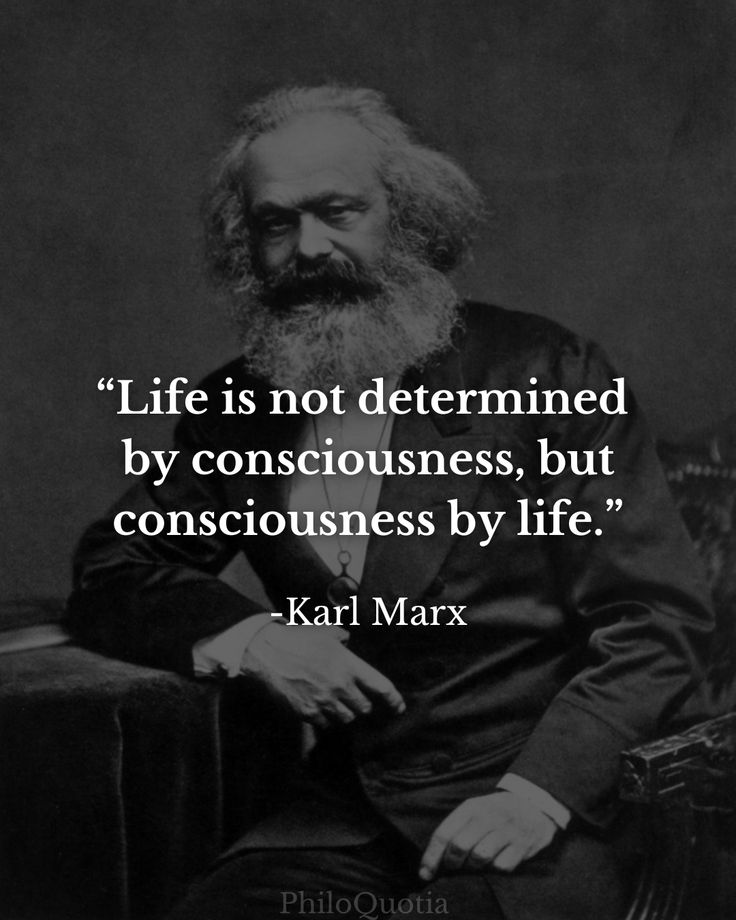Karl Marx was a German philosopher, economist, sociologist, and revolutionary socialist who profoundly influenced the course of history with his ideas on class, capitalism, and social change. His works have had a lasting impact on political theory, economics, and sociology, and continue to shape debates on the structure of societies and the nature of capitalism today. Marx is most famous for his analysis of capitalism and his development of the theory of historical materialism, as well as for his advocacy of a revolutionary transformation of society.
Early Life and Education
Karl Marx was born on May 5, 1818, in Trier, a small town in western Germany, into a middle-class family. His father was a lawyer who converted from Judaism to Lutheranism, a common practice among Jewish families in Prussia to gain civil rights. Marx went on to study law at the University of Bonn and then at the University of Berlin, where he became involved in intellectual circles that were critical of the political and social order of the time.
At the University of Berlin, Marx was introduced to the ideas of German philosophy, particularly the works of Georg Wilhelm Friedrich Hegel. Marx was deeply influenced by Hegel’s dialectical method, which emphasized the process of change and contradiction within history, although Marx would later adapt this method in a materialist direction, creating what would become known as “historical materialism.”
The Development of Marx’s Thought
Marx’s early career was largely focused on writing. He initially worked as a journalist for a radical newspaper called Rheinische Zeitung, but his criticisms of the Prussian government led to his dismissal. This period marked the beginning of his deep engagement with political theory. In his writings, Marx increasingly critiqued the structure of society, focusing on the relationship between the ruling class (the bourgeoisie) and the working class (the proletariat).
Marx’s ideas evolved from Hegelian philosophy into a critique of political economy. One of his central arguments was that the economic structure of society, or the “base,” fundamentally shaped the social, political, and ideological “superstructure.” He believed that the material conditions of life—the way in which goods and services are produced—determined everything from the form of the government to the way people think about their world. For Marx, the relations of production (how people produce and exchange goods) shaped the entire societal structure.
Marx was particularly critical of capitalism, which he saw as a system that exploits workers and leads to the concentration of wealth in the hands of a few capitalists (the bourgeoisie) while impoverishing the majority (the proletariat). His critique of capitalism is most clearly articulated in his monumental work Das Kapital (The Capital), where he analyzes the capitalist mode of production, focusing on how labor, value, and capital function within capitalist economies.

he Theory of Historical Materialism
Central to Marx’s thought is the theory of historical materialism. Historical materialism posits that the development of human society is primarily driven by material economic forces, not by ideas or ideals. Marx argued that history is a history of class struggles, where the economic base of society drives social and political change.
In Marx’s view, societies evolve through a series of stages, each marked by a different mode of production. The main stages in his theory are:
- Primitive Communism: In early human societies, there were no private property or social classes, and resources were shared communally.
- Slave Society: The transition to a system where landowners and slave owners dominated, and the production of goods was based on slave labor.
- Feudalism: A society based on the division of land among nobles and worked by peasants who were bound to the land.
- Capitalism: A system characterized by private property, wage labor, and the exploitation of workers by capitalists.
- Socialism: A transition period in which the working class (the proletariat) would overthrow the bourgeoisie, leading to the collective ownership of the means of production.
- Communism: A classless, stateless society where the means of production are communally owned and goods are distributed based on need rather than profit.
Marx believed that each new stage in history arose as a result of the contradictions and conflicts within the previous mode of production. For instance, he argued that the tensions between feudal lords and peasants led to the rise of capitalism, and that the inherent contradictions within capitalism—particularly the exploitation of workers—would eventually lead to a socialist revolution.

Capitalism and Class Struggle
Marx’s analysis of capitalism focused on the relationship between capital and labor. In his famous work The Communist Manifesto (1848), co-authored with Friedrich Engels, Marx argued that history is a history of class struggles. Under capitalism, the bourgeoisie controls the means of production, while the proletariat sells their labor to survive. This relationship is exploitative because the value created by workers is greater than the wages they receive, with the surplus value being extracted by capitalists as profit.
Marx believed that the capitalist system was inherently unstable. Capitalism, according to Marx, is characterized by cycles of boom and bust, where overproduction and underconsumption lead to economic crises. These crises, combined with the exploitation of workers, would eventually lead to a revolutionary consciousness among the working class. Marx believed that once the proletariat became aware of their exploitation and alienation under capitalism, they would rise up and overthrow the bourgeoisie, leading to the establishment of a socialist state.
The Revolution and the Role of the State
One of the central tenets of Marx’s philosophy is the idea that the state is an instrument of class domination. In capitalist societies, the state exists to maintain the power of the ruling bourgeoisie, protecting their private property and economic interests. Marx argued that the state, in its current form, could not be used to achieve the goals of socialism. Instead, a revolution would be necessary to overthrow the capitalist class and establish a dictatorship of the proletariat—the working class that would rule on behalf of the broader masses.
In the period of socialist transition, the state would be used to suppress the bourgeoisie and implement policies that would gradually lead to the abolition of classes. Over time, Marx envisioned the state withering away, as class distinctions disappeared and society became self-managed and organized based on the principle of “from each according to his ability, to each according to his needs.”

Marx’s Legacy and Influence
Karl Marx’s theories have had a profound impact on the development of modern socialist thought and movements. Marxist ideas were adopted by various revolutionary movements around the world, including the Russian Revolution of 1917, which led to the establishment of the Soviet Union under Vladimir Lenin and later Joseph Stalin. Marxist ideas also influenced the formation of socialist parties and communist movements in many countries.
Marx’s critique of capitalism remains influential in contemporary discussions about inequality, class struggle, and the relationship between labor and capital. Scholars continue to draw on Marx’s analysis of capitalism to critique neoliberal economic policies, which prioritize market forces and wealth accumulation over the well-being of workers.
In addition to his influence on political movements, Marx’s ideas have shaped fields such as sociology, economics, and cultural studies. His concept of historical materialism, the analysis of class struggle, and his ideas about ideology and alienation have provided foundational tools for understanding social change and the dynamics of power in society.

Conclusion
Karl Marx’s ideas about class, capitalism, and social transformation have had a profound and lasting impact on modern thought. His theory of historical materialism and his critique of capitalism continue to shape debates on social justice, inequality, and the potential for revolutionary change. Whether in the context of political movements, academic scholarship, or contemporary critiques of capitalism, Marx’s work remains a powerful lens through which to understand the contradictions and injustices of modern societies. While his predictions of a workers’ revolution have not materialized in the way he envisioned, his analysis of capitalism and class remains a crucial part of the intellectual legacy that continues to challenge existing social and economic systems.


